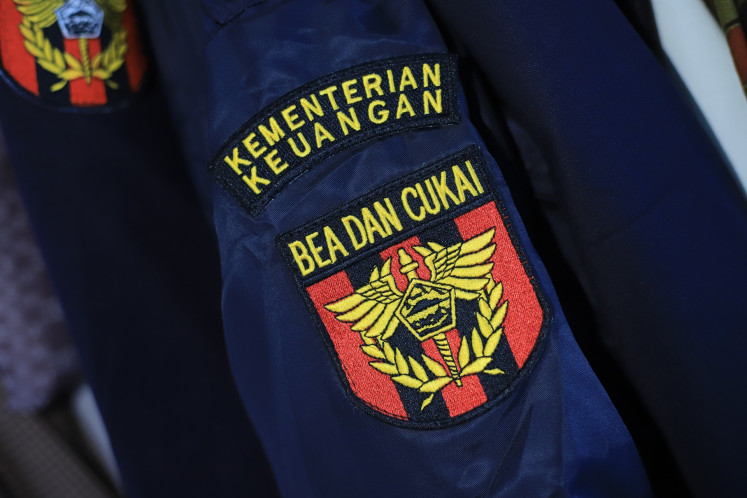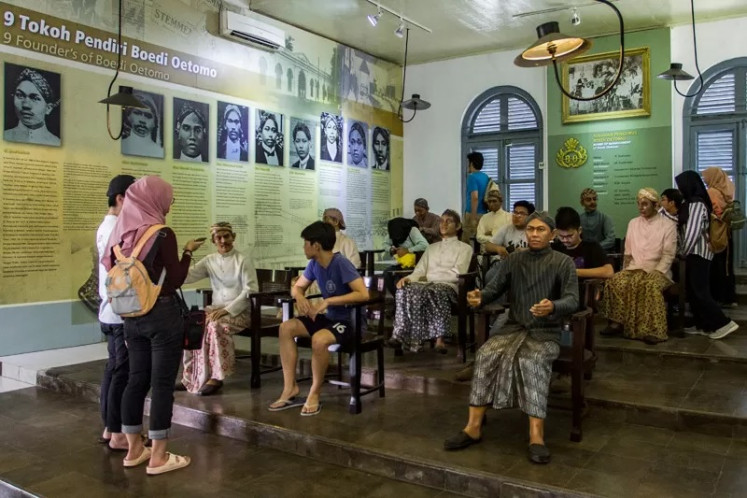IS fighter’s death may throw followers into frustration
The recent death of an Islamic State (IS) group fighter from Indonesia, Abu Jandal al Yemeni al Indonesi, or Salim Mubarak Atamimi, who was killed during the US-led international coalition advance on Mosul, Iraq, may put his followers back home into a state of disarray and frustration, possibly leading to discouragement or attempts at revenge
Change text size
Gift Premium Articles
to Anyone

T
he recent death of an Islamic State (IS) group fighter from Indonesia, Abu Jandal al Yemeni al Indonesi, or Salim Mubarak Atamimi, who was killed during the US-led international coalition advance on Mosul, Iraq, may put his followers back home into a state of disarray and frustration, possibly leading to discouragement or attempts at revenge.
National Police spokesman Insp. Gen. Boy Rafly Amar confirmed the death of the former milk vendor from Malang, East Java, on Sunday.
Abu Jandal was believed to be a close confidant of radical ideologue and terror convict Aman Abdurrahman, who is currently locked up on the prison island of Nusakambangan in Cilacap, Central Java.
Abu Jandal was the suspected leader of a terror cell based in several regencies in East Java. His death might delay leadership succession at home and cause a rupture in communication from Iraq and Syria as his followers will have difficulties in seeking advice on what they
should do.
The situation could lead to frustration in his followers and inspire them to launch more random and sporadic attacks in Indonesia to revenge Abu Jandal’s death, the director of the Jakarta-based Institute for Policy Analysis of Conflict (IPAC) Sidney Jones said on Sunday. The leadership vacuum could divide groups under the control of Abu Jandal.
Aman could later determine the change of course as he is the closest figure to Abu Jandal, Jones said. However, whether or not Aman can maintain the enthusiasm of Jandal’s followers remains unknown because he is currently in an isolation room on Nusakambangan.
Aman was put in an isolation room following revelations that he had links to the attack targeting Central Jakarta on Jan. 14.
“It could go either way at this stage. [Abu Jandal’s death] could possibly increase the motivation for attacks here, but it could also lead to a drop in enthusiasm for jihad, especially for joining the Hijrah [moving to Iraq and Syria],” Jones added.
Two other Indonesian militants who have joined IS, namely Bahrun Naim and Bahrumsyah, cannot take over Abu Jandal’s role because the two have their own followers in Indonesia and they are currently fighting in Syria and Iraq as the US-led coalition steps up its offensive on cities taken over by the radical group over the last two years.
Bahrun is not seen as a fighter as his main role is to try and urge others to wage war at home. A tech savvy militant, Bahrun could reach out to Abu Jandal’s followers in Indonesia, but this does not necessarily mean that he can gain the respect of Abu Jandal’s followers, Jones added.
Terrorism expert from the University of Indonesia (UI) Ridwan Habib echoed these sentiments, saying that it was unlikely that Bahrun and Bahrumsyah would take over Abu Jandal’s followers because the three IS militants had different characteristics and demographic influence in Indonesia.
Abu Jandal made headlines when he uploaded videos on YouTube in December 2014. In the videos, he urged Indonesians to join IS and made threats against the Indonesian Military (TNI), the National Police and the youth wing of Indonesia’s largest Muslim organization, Nahdlatul Ulama (NU).









